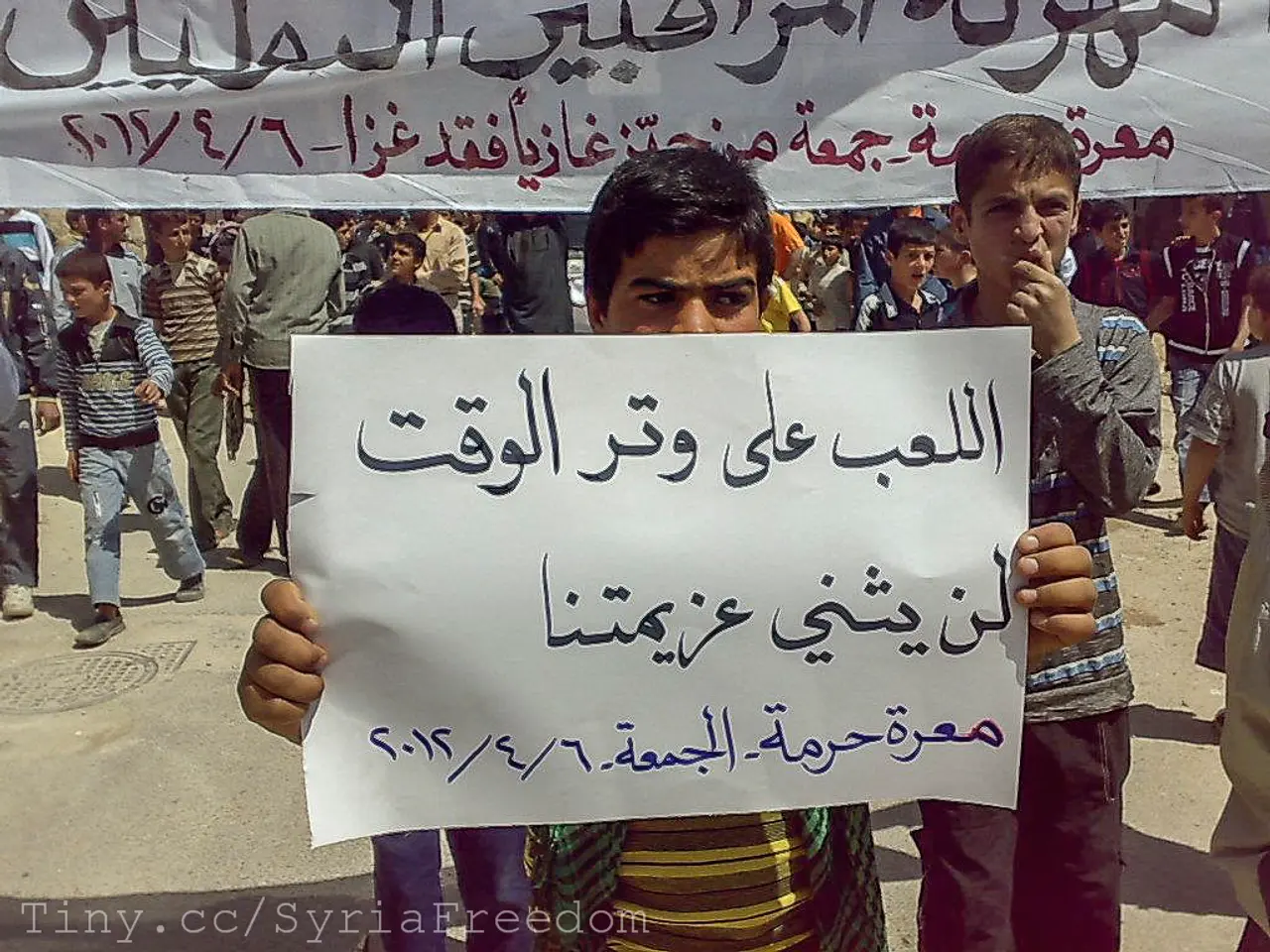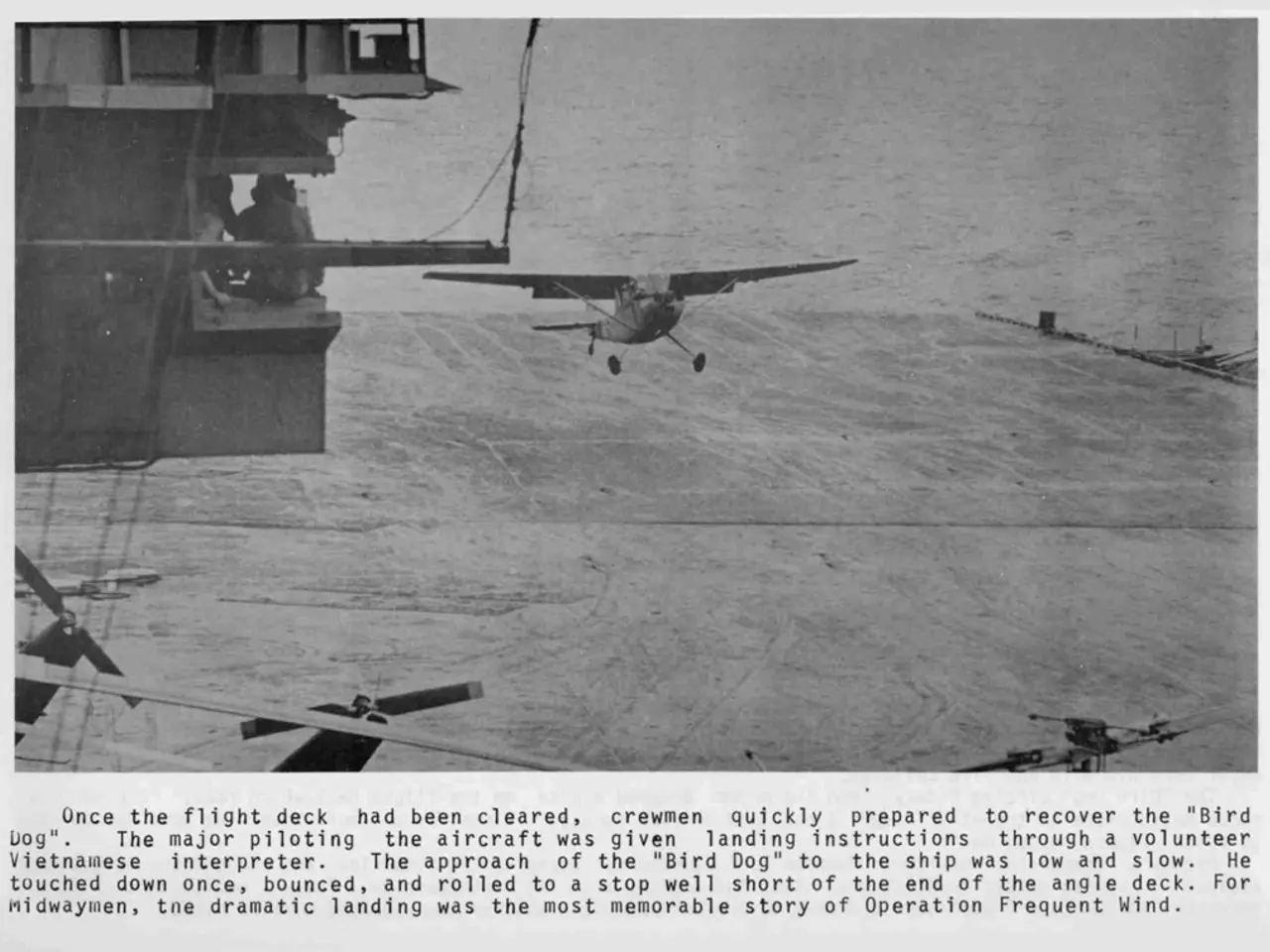U.S. Administration Halted Weapons Deliveries for Israel's Gaza Military Operation
In a significant shift from its historically strong support for Israel, the German government has suspended arms exports to Israel specifically for use in the Gaza Strip, in response to Israel's planned offensive to seize Gaza City[1][3].
German Chancellor Friedrich Merz emphasized that while Germany recognizes Israel's right to defend itself against Hamas terrorism, the intensified military operations and plans to occupy Gaza City raise serious concerns about achieving key objectives such as the release of hostages and securing a ceasefire[1][3].
The German government's primary priorities are securing the release of hostages held by Hamas, pursuing determined ceasefire negotiations, and ensuring that assistance and humanitarian aid can reach civilians in Gaza without restrictions[1][3][4]. The government is urging Israel to provide unrestricted access for United Nations agencies and NGOs.
Chancellor Merz explicitly cautioned Israel not to annex the West Bank[3]. This policy reflects Germany’s concern over the humanitarian situation in Gaza and the risk that the Israeli offensive worsens civilian suffering[1][3][4].
The partial arms embargo applies only to new military equipment that could be used in Gaza and does not completely halt all weapons exports[3]. In the broader international context, this stance aligns with a growing distancing by several European countries from Prime Minister Netanyahu’s government policies following the Gaza offensive decision[2].
The Israeli cabinet approved a "more aggressive military approach" by the Israeli army in the Gaza Strip the previous night. However, no new information about the Israeli plan to capture Gaza City and the temporary expulsion of approximately 800,000 people was provided.
Merz did not reiterate his views on the disarmament of Hamas and Hamas not playing a role in Gaza in the future. He also did not reiterate his stance on Israel's right to defend itself against Hamas terrorism.
Israel must further comprehensively and sustainably improve the humanitarian situation in Gaza. Merz demanded comprehensive access for aid deliveries, including for UN organizations and other non-state institutions in Gaza.
The ongoing suffering of the civilian population in the Gaza Strip is a matter of deep concern for the German government. The release of hostages and targeted negotiations on a ceasefire remain top priorities for the German government.
[1] The Guardian. (2021). Germany suspends arms exports to Israel over Gaza offensive. [online] Available at: https://www.theguardian.com/world/2021/mar/19/germany-suspends-arms-exports-to-israel-over-gaza-offensive
[2] The Jerusalem Post. (2021). Germany suspends arms exports to Israel over Gaza offensive. [online] Available at: https://www.jpost.com/israel-news/politics-and-diplomacy/germany-suspends-arms-exports-to-israel-over-gaza-offensive-665378
[3] Deutsche Welle. (2021). Germany suspends arms exports to Israel over Gaza offensive. [online] Available at: https://www.dw.com/en/germany-suspends-arms-exports-to-israel-over-gaza-offensive/a-57565094
[4] Reuters. (2021). Germany suspends arms exports to Israel over Gaza offensive. [online] Available at: https://www.reuters.com/world/middle-east/germany-suspends-arms-exports-israel-over-gaza-offensive-2021-03-19/
The German government, amidst the ongoing tension in war-and-conflicts, has taken a significant stance against Israel's offensive in Gaza by suspending arms exports specific to the Gaza Strip, expressing concerns for achieving general-news objectives such as releasing hostages and securing a ceasefire. Germany's political priorities in this situation are not only about securing releases and ceasefire negotiations but also ensuring humanitarian aid can reach civilians without restrictions, a concern that aligns with crime-and-justice principles regarding the plight of Gaza's population.






